Having a new baby is exhilarating. However, while your heart feels full of love, your eyes are drooping because you’re having trouble getting your baby to sleep through the night.
Your baby’s sleep patterns can have a strong effect on your ability to function throughout the day. Too many sleepless nights and you’ll start to feel groggy, depressed, and downright useless.
However, between the night feedings and the sleep regression, it feels like you never get any uninterrupted sleep.
While sleep training may seem like a drastic measure, there are some benefits to getting your baby into a consistent sleep routine.
But that’s not the only way to curb night waking. Read on to learn our top tips on how to get a good night of sleep by helping your baby to sleep through the night.
(Note. While we earn commission from the links in this article, we only recommend the products we truly believe will improve your sleep the most. These commissions come at no extra expense to you and help us to keep providing you with expert sleep information for free.)
How a Baby Sleeps Based on Their Age
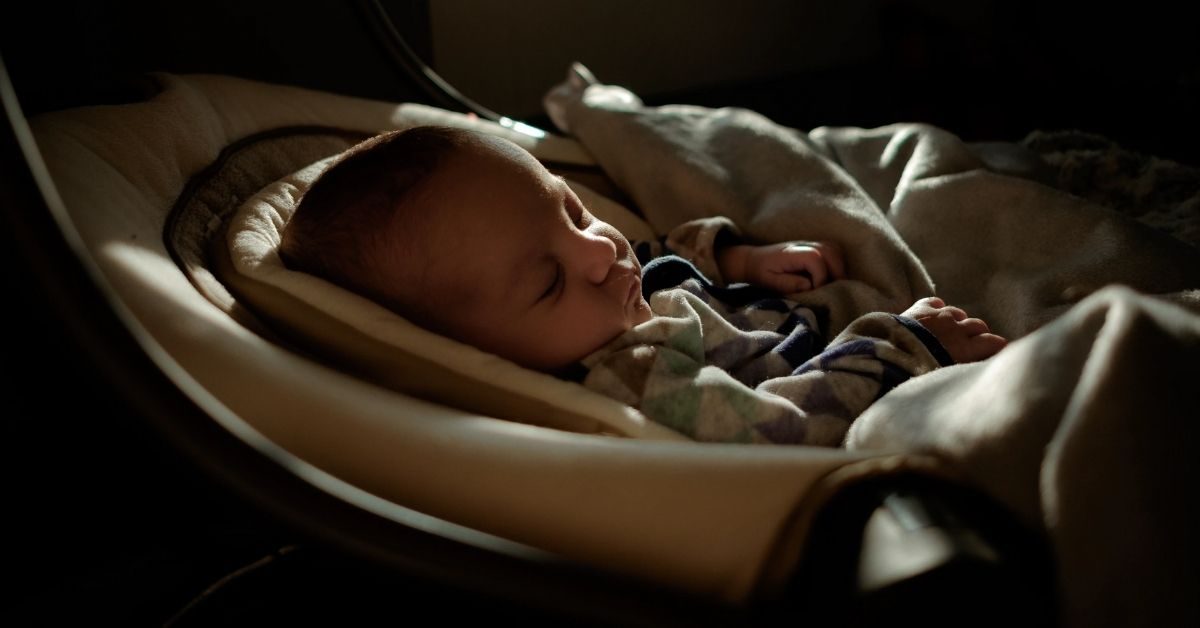
Sleep requirements and sleep readiness don’t just vary from baby to baby, they also differ depending on age. The length of normal infant sleep changes as they get older, with daytime sleep hours and nighttime sleep hours decreasing over time.
While you can expect to get a longer stretch of sleep from an older baby, you’ll also need to think about sleep regression and work out how to deal with this.
Check out these infant sleep patterns by age.
Newborn
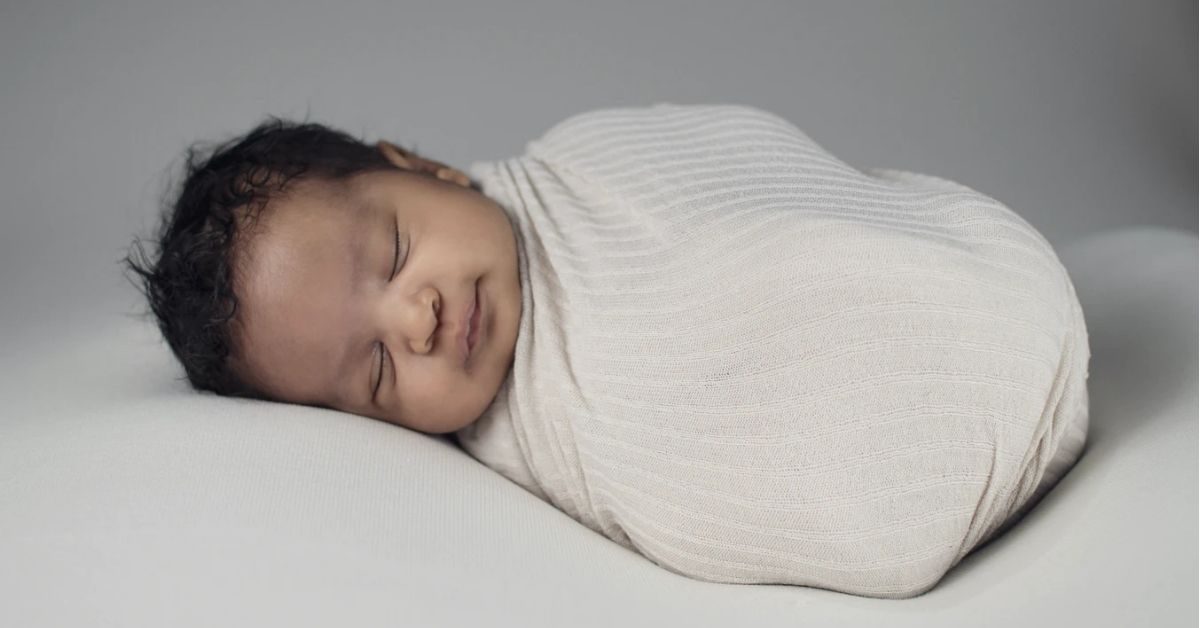
A newborn baby needs around 14-18 hours of sleep. Sadly, newborn sleep doesn’t all happen at night time.
During the day, your newborn baby will likely fall asleep then be awake in two-hour intervals.
At night, newborn sleep lasts for around four hours at a time. Your baby will wake up for frequent feedings throughout the night.
1-month old baby sleep is pretty similar.
2-4 months old
At two to four months, their sleep habits are fairly similar to a newborn baby, except their naps start to become less frequent.
Your baby will get around 13-14 hours of sleep in a 24-hour period.
Usually, your baby will have nap time two or three times a day and sleep for five to eight-hour intervals during the night (although, being at the high end is very unlikely).
Your baby will need about two to three night feeds, but you can try to dream feed to keep your baby from fully waking up during these nighttime feedings.
There is one thing to watch out for. During this time period (usually around the three-month mark) your baby will likely fall back into the same pattern of sleep you would see in a newborn. This is perfectly normal and not a sign that something is wrong with your baby. This can be stressful, but don’t worry, it usually goes away after a few weeks.
Need extra help learning how to get your baby to sleep? Try the 0-4 Months Sleep Training Course by Peaceful Sleeper.
As one happy Mom puts it: “I loved this newborn class! This is straightforward, easy to follow, and so helpful!”
4-8 months old

At four to eight months your baby typically gets around 12 to 14 hours of sleep a day.
Their day sleep patterns remain largely the same, taking about two or three naps a day. However, naps tend to be shorter. At this age, daytime sleep averages less than two hours at a time.
At this stage, a healthy baby is likely sleeping about six to ten hours at night, meaning that you can get a full night’s rest. You won’t have to wake the baby for feedings as they’ll reduce nighttime feeds down to just one or two per night.
However, at around four months, you may experience sleep regression. Your baby’s sleep architecture changes as their sleep patterns mature. This can lead to your baby’s sleep taking a step backward.
8-12 months old
Your baby is almost a year old and at this age, they likely have a more predictable sleep pattern.
Your baby will still probably be taking about two to three naps that are about an hour to an hour and a half long. At night, your baby will have a good seven to ten hours of active sleep at a time, giving you plenty of time to rest. You’re likely to have stopped late-night feeding or be down to a single night feed.
At this stage though, your baby is likely already moving around quite a lot. Your baby might like to wake up and move around in the night so make sure their sleep environment is safe.
Still struggling to get your baby down for the night? If you’re looking for help getting older babies to sleep, try the 4-24 Months Sleep Training Course by Peaceful Sleeper.
As ecstatic Mom, Jacqueline, puts it: “I got the course and learned SO much about sleep training. I gained so much confidence in my ability to sleep train my baby. She did amazingly well with the training and it almost seemed like she was relieved to have consistency and for me to know her sleep cues and when she would be tired. She caught on so quickly and learned how to soothe herself and be calm and confident enough to sleep through the night. The course gave me knowledge and confidence so that I could teach her and have her have comfort and confidence in me and herself. “
9 Top Tips That Will Help Your Baby to Sleep Through the Night
When you put your baby to bed to sleep at night, are you praying that tonight’s sleep time duration will be longer than yesterday? The effects of poor sleep can really get you down.
If your baby is getting into bad habits, you may find that their nighttime sleep hours are shorter as they’re having a difficult time trying to self-soothe. This is a common challenge for many new parents.
Here are some top tips to help your baby to sleep through the night, so you can get some quiet sleep too.
1. Pay attention to their day naps
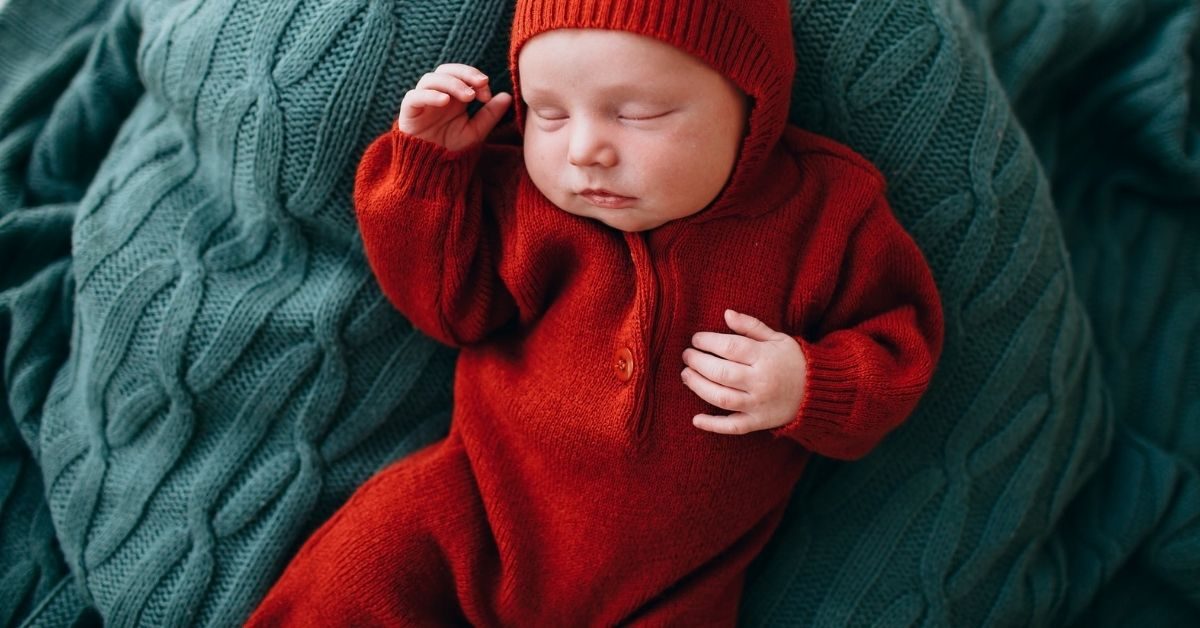
If adults wanted to sleep better at night, they wouldn’t nap for a really long period of time during the day. While babies definitely need naps, it’s important to pay attention to these day sleep patterns to make sure they’re not oversleeping throughout the day.
If they nap too much, then they won’t be as tired when it’s time for bed.
It’s hard to control your newborn’s sleep routine (especially since they are sleeping about 18 hours a day), but once your child hits the 2-month mark, it becomes easier. Try to make sure your child isn’t napping more than three times a day.
You also want to prevent your baby from napping too late in the day.
As pediatrician Dr. Alison Mitzner, advises,
“Make sure if they are still napping that the last nap doesn’t go too late in the afternoon.”
2. Keep a consistent bedtime routine
According to Dr. Mitzner, you need to “have a consistent bedtime routine and stick with it.”
Try using the 4 Bs: bath, book, bed, bottle.
Make a big show of getting your little one into their pajamas and keep the baby upstairs once they’re changed and ready for bed. Do this at the same time every night to balance their internal clock. This will trigger the release of sleep hormones in their brain and help balance their circadian rhythm.
As sleep consultant and founder of Sleepy on Hudson, Brooke Nalle, puts it:
“A consistent bedtime routine can work wonders. The order is up to you, but it usually involves a soothing bath, a story, and one last feeding. I also like to add a quick massage with lotion, gently squeezing and releasing the baby’s knees, wrist, elbows, and shoulders, wherever there’s a joint. Then you might do a final ‘closing up’ of the nursery: Now we turn out the light, now we start the white-noise machine, now we sway beside the crib, now I lay you down–and that’s the signal that it’s time to sleep.”
Don’t be afraid to start implementing a bedtime routine from the beginning.
As baby sleep expert Dr. Aubrie explains,
“Newborn babies should have a bedtime, even though they still wake up to eat in the night.”
3. Teach your baby to self-soothe
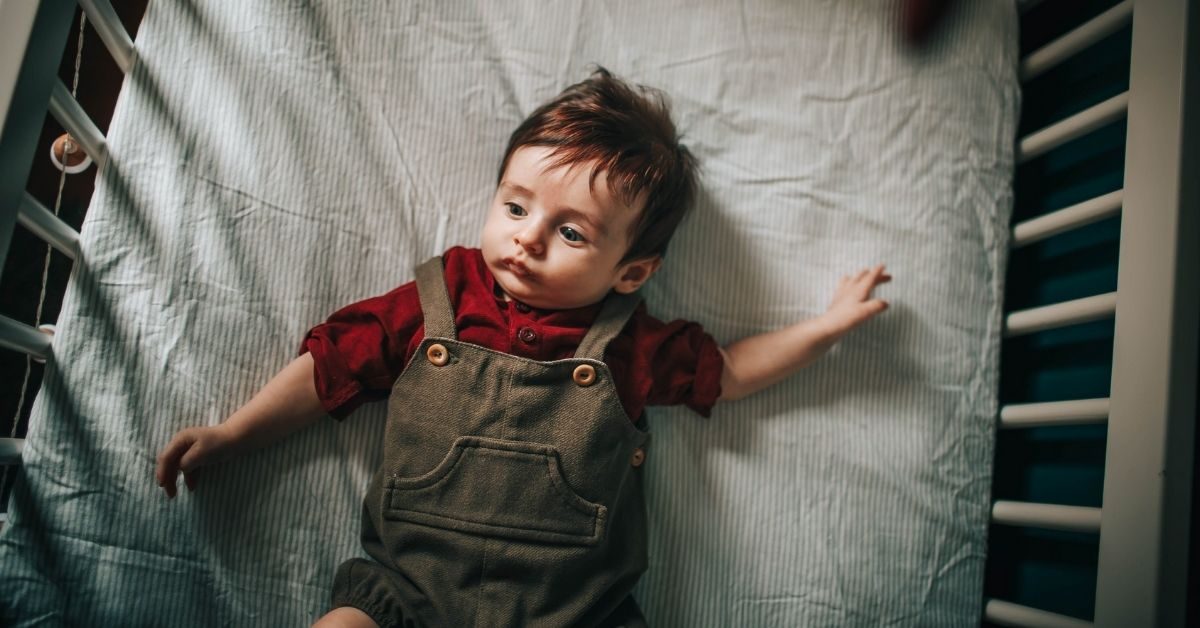
This one can sound just a little harsh at first, but teaching your baby to self-soothe helps them get back to sleep alone when they wake up during the night.
One method that has proven to be useful is letting your baby cry for a certain interval of time (around five minutes) before you go in to check on them and soothe them. You can distance out these intervals further as they get older.
Another way to encourage them to self-soothe is to stand there when they cry, but don’t tend to them. Your baby can see you and because of this, they know that they are safe and that you are there if there is a danger to them, but they also start to learn how to calm down and soothe themselves.
Finally, if your baby is not responding to these methods, try putting your hand on their chest. The weight that your hand provides acts as a comfort for them, without you picking them up and soothing them. Some experts recommend using weighted blankets to help with separation anxiety.
While sleep training methods can seem a little drastic, according to Cribsheet author Emily Oster, they do work — just so long as you’re consistent.
4. Don’t rock your baby to sleep
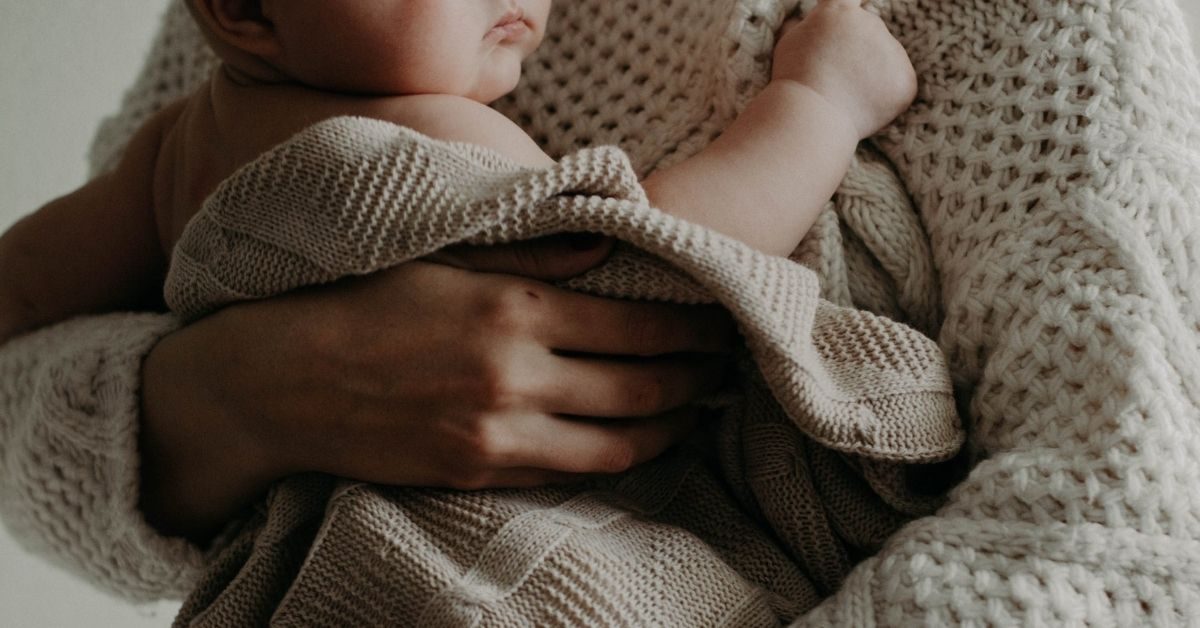
This is a controversial piece of advice, but many sleep experts say you shouldn’t rock your baby to sleep.
According to Kelly Murray, certified pediatric and adult sleep consultant and sleep coach for Motherfigure,
“If you’re helping your baby to fall asleep (i.e. by rocking, feeding, bouncing, etc.), then they will be alarmed that they are no longer in your arms, which will lead to a full wake-up. They will then need you to help them fall back to sleep.”
Apparently, teaching your baby to fall asleep on their own helps to sleep for longer periods of time.
“Instead of being rocked or fed to sleep, they should be put in their cribs wide-awake to fall asleep on their own. This will allow them to fall asleep more quickly, as well as to sleep for longer stretches throughout the night.”
5. Utilize white noise
Studies show that white noise can help to soothe your baby, especially if they’re colicky. This also help to drown out any loud noise that might wake up the baby
As Rosey Davidson, Sleep consultant and CEO of Just Chill Baby Sleep, explains,
“The gentle, consistent sounds can help calm your baby. You probably instinctively find yourself saying ‘sssh sssh,’ to your little one. It’s a sound that mimics the sound of your heartbeat that your baby is used to from being in the womb. After spending months in the safe environment of the womb, babies can find all the strange sounds, smells, and surroundings overstimulating and stressful. The sounds that your baby will have been used to were muffled by amniotic fluid. Playing white noise at bedtime can recreate this.”

Try the SNOOZ White Noise Sound Machine. It has 10 volume settings and adjustable white noise tones. You can even connect it to the app to adjust the settings without disturbing your baby.
6. Keep the room cool
New parents are often frightened of their baby getting cold. However, at nighttime, your body temperature drops to help you sleep better.
This is the same for babies. They will sleep better in a cooler room over a hotter one.
As Brooke Nalle explains,
“We all sleep best in a cool room, including babies. Aim to keep your thermostat between 68 and 72 degrees Fahrenheit to give your baby the most comfortable sleep. If her fingers feel chilly, that’s normal. To reassure yourself, put your hand on her chest. If it’s warm, she’s warm enough.”
7. Block out the light
The sleep hormone, melatonin, is triggered by light. If it’s light outside, this suppresses melatonin production.
As baby sleep consultant Nicole Johnson explains,
“Light stimulating our eyes is what signals our brain to wake or sleep, so we need to signal our brains at the ‘right’ time.”
In this respect, it’s smart to keep the lights dim during your bedtime routine, to offer signs of sleep time.
This stimulates melatonin production.
Make sure you’re also using blackout shades so that no bright light is creeping into your baby’s room and waking them up at night.
8. Read your baby’s tiredness patterns

Knowing when your baby is tired can prevent you from overstimulating them too late at night.
By getting to know your baby’s natural sleep schedules, you can plan their bedtime routine around their tiredness.
As sleep consultant Jenni June puts it,
“Timing is critical. Tuning into your baby’s natural biological rhythms—by reading her telltale drowsy signs—ensures that when she’s placed in her crib, melatonin (the powerful sleep hormone) is elevated in her system, and her brain and body will be primed to drift off with little fuss. If you wait too long, however, your infant can become overtired, so not only will she have lower melatonin levels, but her brain begins to release wakefulness hormones like cortisol and adrenaline. This makes it difficult for your baby to fall asleep and stay asleep and can lead to early wake-ups. So don’t miss these cues: When your little one is still, quiet, disinterested in her surroundings, and staring off into space, melatonin is peaking in her system and it’s time to go to bed.”
9. Have your quick change gear ready

It’s not just nighttime feedings you have to think about. You may also have to change your baby at night.
If you’re not careful, changing your baby can wake them up, making it difficult for them to fall back to sleep.
To try and limit disruption, make sure you have everything ready.
As Aimi Palmer, sleep consultant and cofounder of AB Child Solutions, explains,
“Hunting for a fresh crib sheet after your baby soaks his diaper or spits up is miserable in the middle of the night, and turning on the lights can wake him up more fully, meaning getting him back to sleep can take an eternity. Instead, double layer ahead of time: Use a regular crib sheet, then a disposable waterproof pad, then another sheet on top. That way, you can just peel away the top layer and pad, throw the sheet in the hamper, and toss the waterproof pad. Also be sure to keep a one-piece, a swaddle, or a sleep sack nearby — whatever it is your baby needs to continue the night comfortably — so you’re not hunting through drawers every time your baby’s diaper leaks.”
Final Thoughts
Trying to get your baby to sleep through the night can be a common challenge. Don’t get disheartened — it will happen in the end.
Try to create a soothing sleep environment so that your baby can drift off peacefully and self-soothe if they wake up.
Try using blackout curtains to keep the light out and a SNOOZ White Noise Sound Machine to drown out loud noise and provide a comforting sound to keep your baby sleeping soundlessly.
And remember, you don’t have to do this alone. If you need extra help training your baby to get a good night’s rest, try one of the highly-acclaimed sleep training courses by The Peaceful Sleeper.

Welcome to Snoozerville! I’m Dr. Alex Hartley, your guide to the world of restful sleep. With a Ph.D. in Sleep Science and years of experience as a sleep therapist, I’ve dedicated my life to understanding and improving sleep quality. My passion lies in uncovering the mysteries of sleep and sharing practical, science-backed advice to help you achieve the best rest possible. Beyond my academic pursuits, I’m an advocate for mindfulness and relaxation techniques, which I incorporate into my daily routine. At Snoozerville, I aim to transform your nights, combining the latest research with easy-to-implement tips. Whether you’re a chronic insomniac or just looking to improve your sleep hygiene, join me on this journey towards peaceful, rejuvenating sleep.


